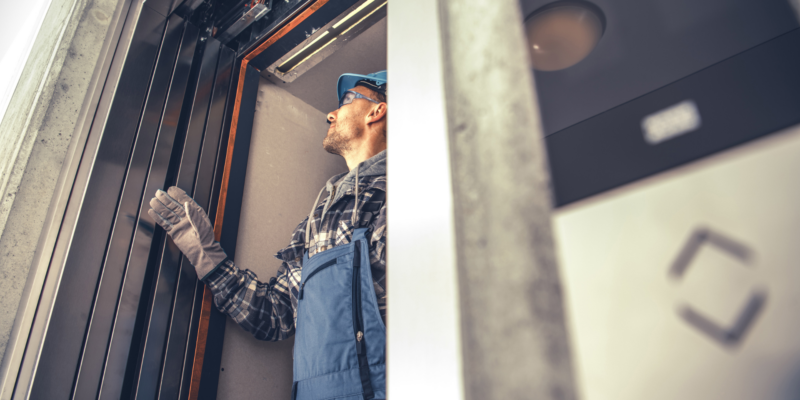You dread putting the “Out of Order” sign on the elevator. It means delays and inconvenience. It reflects poorly on your facilities management. Good vertical transportation testing can help you avoid this scenario. Regular testing will identify problems before they get worse. You can prevent downtime.
Learn more about vertical transportation testing and why it’s so important.
What Is Vertical Transportation Testing?
Vertical transportation testing is part of your elevator inspection, referring to equipment such as:
- Elevators
- Escalators
- Lifts
- Limited Use/Limited Application (LULA) lifts
State and local laws require regular testing and inspections for vertical transportation. Most states require a yearly inspection. County and city laws may require inspections more frequently.
The type of testing you need depends on the type of equipment you have.
How Does Vertical Transportation Testing Work?
The main types of elevator testing are load tests and pressure tests. Pressure testing applies to hydraulic elevators. In many states, a licensed professional must conduct all testing.
Elevator Load Test
A load test verifies that the elevator can function safely while:
- Lifting the maximum load at the maximum speed
- Operating without a load
- Braking
The test evaluates the movement of the elevator in both directions.
Testing engineers follow strict safety measures to minimize the risk of accidents during a load test. Before the test, they inspect the elevator’s safety equipment. This includes the machine brakes, emergency brake, and overspeed governor.
Unauthorized people aren’t allowed into the test area. It remains closed off for the entire test period.
Load tests use controlled weights. Engineers monitor the process carefully to avoid overloading the elevator. They can use the emergency stop control to interrupt the test if they see any unsafe conditions.
Pressure Test
Hydraulic elevators must have a yearly pressure test. This test examines the elevator’s hydraulic fluid. Hydraulic fluid lifts the elevator car while reducing heat and friction.
A pressure test includes a visual inspection of the fluid. The elevator mechanic will also collect some fluid for lab testing.
Importance of Elevator Testing
Elevator testing is important for several reasons. Testing is critical for ensuring vertical transportation safety. A load test verifies that the elevator will perform as expected.
You can identify potential problems before they become worse. Addressing issues promptly helps you avoid breakdowns and expensive repairs.
Following the testing schedule protects you and your building. It helps you comply with state and local regulations. You avoid possible fines and penalties.
Elevator testing protects your reputation. An elevator failure would have a significant impact on your ability to attract and retain future tenants.
Choose the Right Vertical Transportation Testing Company
Vertical transportation testing is important for the safety of your building and tenants. It keeps you in compliance with state and local laws. Load testing and pressure testing are two of the most common types of tests.
Choosing the right elevator company for your elevator testing is essential. You need an experienced firm you can count on.
Action Elevator has been conducting elevator testing for more than 20 years. We’ll help you navigate the state, county, and municipal regulations. You can be proactive in your elevator testing and have confidence in the safety of your equipment.
Contact us today to discuss your elevator testing needs and experience the Action Elevator difference.
